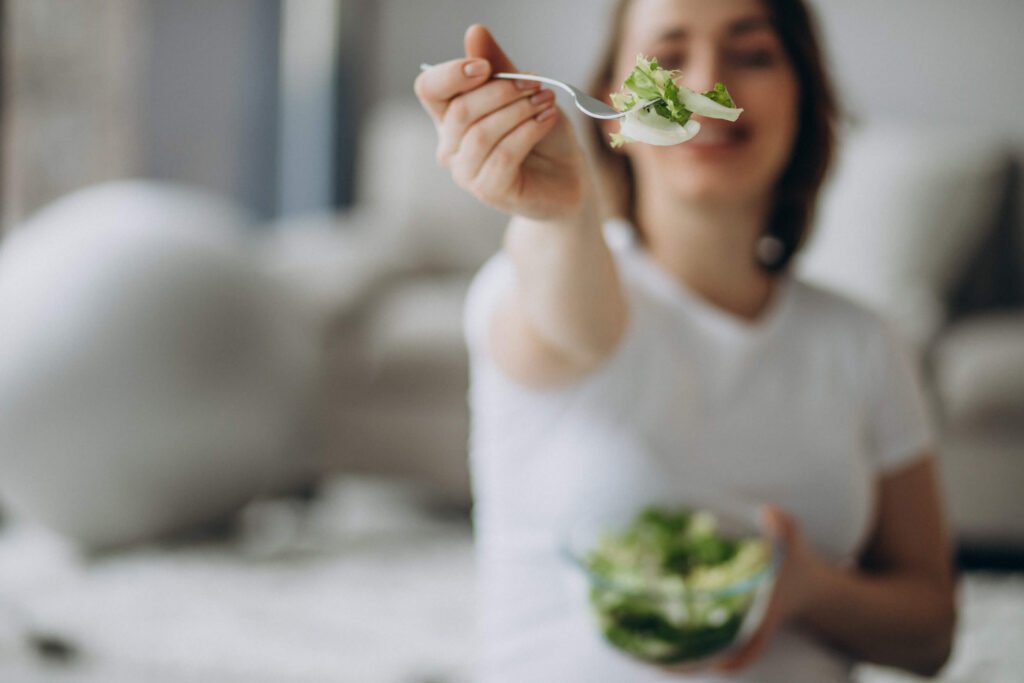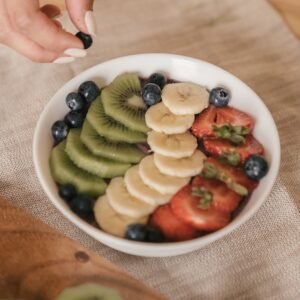Eating Your Way to Healthy Eyesight
Many of us grew up being told to eat our squash and carrots because they are rich in Vitamin A plus they are good for the eyes. And while this nugget of truth hasn’t changed, there’s also a number of other vitamins and minerals that our eyes need to stay nourished and protected from eye diseases.
We listed the vitamins, minerals, and nutrients essential in keeping your eyes healthy and protected from common eye problems!

- Lutein and Zeaxanthin
Lutein and Zeaxanthin’s main function is to ensure that the retina is healthy by giving it its pigment. They help protect the eyes from the development of cataracts and age-related macular degeneration (AMD) or loss of central vision.

Where to Get It: Get it with the help of green leafy vegetables. Fortify your everyday meals with vegetables like broccoli, spinach, and kale all of which are great sources of Lutein and Zeaxanthin. You can also throw in squash, corn, oranges, and papayas into the rotation to make sure your retinas are taken care of.
Beta Carotene and Vitamin A
When we consume food that is rich with Beta Carotene, our bodies are able to synthesize it and turn it into Vitamin A. Vitamin A keeps the cells that sense light healthy so that we’re able to see well in the light and to use our night vision as well.
Where to Get It:

Carrots are good for the body, the eyes especially. You can also get your dose of Vitamin A from oranges, strawberries, melons, and sweet potatoes. Some people get their dose of Vitamin A from dairy products such as yogurt, milk, and cheese and you can include these in your diet as well.
- Omega-3
Omega-3 are essentially healthy fats and are good for the heart. But did you know that omega-3 is good for the eyes too?
Omega-3 keeps our eyes lubricated thus preventing it from possible irritation and infection caused by dry eyes. A diet rich in omega-3 also helps us avoid diabetic retinopathy, a condition common among people who have diabetes wherein the retina deteriorates and the vision blurs overtime.

Where to Get It: The most common sources of omega-3 are fatty fish like sardines, tuna, and salmon. You can also get it from seeds like peanuts, lentils, flaxseed, and many other nuts, seeds, and legumes.
Beta Carotene and Vitamin A
When we consume food that is rich with Beta Carotene, our bodies are able to synthesize it and turn it into Vitamin A. Vitamin A keeps the cells that sense light healthy so that we’re able to see well in the light and to use our night vision as well.
Where to Get It:

Carrots are good for the body, the eyes especially. You can also get your dose of Vitamin A from oranges, strawberries, melons, and sweet potatoes. Some people get their dose of Vitamin A from dairy products such as yogurt, milk, and cheese and you can include these in your diet as well.
- Vitamin E
Vitamin E protects the eyes by fighting free radicals that cause damage to healthy optic cells and tissues. It also works with other vitamins and minerals to slow down age-related macular disease (AMD) and the growth of cataracts as we age.

Where to Get It: Among the best sources of Vitamin E include peanut butter, almonds, sunflower seeds, and broccoli. You can also get Vitamin E from vegetables, citrus fruits, and crops like sweet potatoes.
Zinc
Our body is able to process Vitamin A with the help of zinc which results in the production of melanin, a protective pigment found in the eyes. Zinc also protects the cell membranes around the eyes from the damages of oxidative stress and the free radicals that can damage the cells.
Where to Get It:

Zinc naturally occurs in the body and our bodies being intelligent know how much zinc it needs to produce to make sure that all bases that need it are covered. However, there are people who may need a bit of boost from food to get their zinc supply. Protein sources like beef, eggs, and pork are rich in zinc but you can also find it in beans, chickpeas, and oysters.
The ClearSight Advantage
Usually, getting our vitamins and minerals through food is enough to keep our bodies healthy. And while this is the ideal scenario, it isn’t always the case for those who either have limited time or access to shop and prepare meals.
This is when ClearSight becomes helpful. ClearSight Eye Food Supplement is made with a powerhouse combination of vitamins and minerals our body needs to keep our eyes healthy. Each ClearSight softgel is packed with lutein, omega-3, beta carotene, Vitamin E, and zinc to supplement your healthy diet. It is FDA-approved and safe for daily intake. Give your eye health a boost by eating a healthy diet by taking one ClearSight capsule every day and get started on taking care of your eyes better today!
As a general precaution, it’s always best to consult with your doctor prior to taking any vitamins and supplements no matter your health condition, and especially if you are pregnant or are on maintenance medication.
ClearSight is available at all leading drugstores in the Philippines including Mercury Drug, Watsons, Southstar Drug, and Rose Pharmacy. You can also buy ClearSight through our official Shopee and Lazada stores, and via Watsons Online.
- AOA | Diet and Nutrition
- WebMD | Foods Eye Health
- US Pharmacist | Nutrition And Eye-Health at a Glance
- Healthline | 8 Nutrients for Eyes
- Hopkins Medicine | Age-related Macular Degeneration(AMD)
- AAO | Fabulous Foods Your Eyes
- Health Harvard | Top Foods to Help Protect Your Vision
- Medical News Today | 321226
- Medical News Today | 326758
